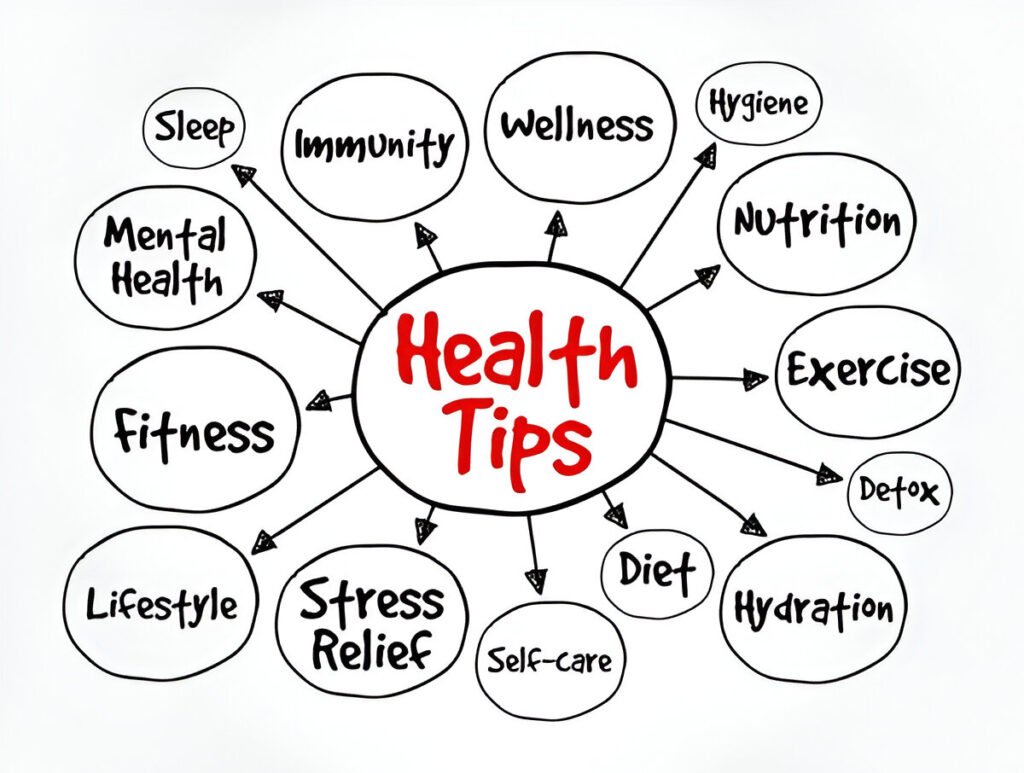Mental Health Tips for Improving Overall Well-Being
In today’s fast-paced world, maintaining mental health is as important as caring for physical health. Mental health influences how we think, feel, and act. It also helps determine how we handle stress, relate to others, and make choices. Here are some essential mental health tips to enhance overall well-being.
1. Prioritize Self-Care
One of the most crucial mental health tips is prioritizing self-care. This involves taking time for yourself to engage in activities that rejuvenate your mind and body. Whether it’s taking a hot bath, reading a book, or practicing mindfulness meditation, self-care helps reduce stress and boosts emotional health. Ensure you set aside some “me time” daily to unwind and recharge.
2. Stay Physically Active
Exercise is not just good for your body but also for your mind. Regular physical activity releases endorphins, which are chemicals in the brain that act as natural painkillers and mood elevators. Aim for at least 30 minutes of moderate exercise, such as walking, running, or yoga, several times a week. Exercise can help alleviate anxiety, depression, and negative mood while improving self-esteem and cognitive function.
3. Maintain a Healthy Diet
A balanced diet plays a significant role in mental health. Foods rich in nutrients, such as omega-3 fatty acids, vitamins, and minerals, can help boost brain function and emotional well-being. Incorporate plenty of fruits, vegetables, lean proteins, and whole grains into your diet. Avoid excessive consumption of caffeine, alcohol, and sugar, as these can negatively impact your mood and energy levels.
4. Get Enough Sleep
Adequate sleep is vital for mental health. Lack of sleep can lead to mood swings, irritability, and cognitive impairment. Aim for 7-9 hours of quality sleep each night. Establish a regular sleep routine by going to bed and waking up at the same time every day, even on weekends. Create a restful environment by keeping your bedroom dark, quiet, and cool, and avoid screens at least an hour before bedtime.
5. Connect with Others
Building and maintaining strong relationships is a key aspect of mental health. Social connections provide emotional support, reduce feelings of loneliness, and increase a sense of belonging. Make time for family and friends, join clubs or groups with similar interests, and don’t hesitate to reach out to others when you need support. Sharing your thoughts and feelings can help lighten your mental load.
6. Practice Mindfulness and Meditation
Mindfulness and meditation are effective techniques for managing stress and improving mental clarity. Mindfulness involves staying present in the moment and accepting it without judgment. This practice can help you become more aware of your thoughts and feelings and respond to them more calmly. Meditation, on the other hand, can help reduce anxiety and increase focus and relaxation. Start with just a few minutes a day and gradually increase the duration as you become more comfortable with these practices.
7. Set Realistic Goals
Setting and achieving goals can provide a sense of purpose and accomplishment, boosting self-esteem and motivation. However, it’s essential to set realistic and attainable goals to avoid feeling overwhelmed. Break down larger goals into smaller, manageable steps and celebrate your progress along the way. This approach can help you stay focused and motivated without adding unnecessary stress.
8. Limit Exposure to Negative News
Constant exposure to negative news can contribute to stress and anxiety. While it’s important to stay informed, try to limit your intake of distressing news. Allocate specific times to check the news and avoid it before bedtime to ensure a restful night’s sleep. Focus on positive stories and engage in activities that uplift your spirit.
9. Seek Professional Help When Needed
If you’re struggling with your mental health, don’t hesitate to seek professional help. Therapists, counselors, and psychologists can provide valuable support and guidance. Therapy can help you develop coping strategies, understand your emotions, and work through difficult experiences. Remember, seeking help is a sign of strength, not weakness.
10. Engage in Hobbies and Activities You Enjoy
Participating in activities you enjoy can significantly enhance your mental health. Hobbies provide a sense of joy and fulfillment, allowing you to relax and escape from everyday stress. Whether it’s painting, gardening, playing a musical instrument, or any other activity that brings you happiness, make time for it in your routine.
11. Practice Gratitude
Gratitude is a powerful tool for improving mental health. Taking time to reflect on the positive aspects of your life can shift your focus away from negative thoughts and increase overall happiness. Keep a gratitude journal where you write down things you’re thankful for each day. This practice can help cultivate a positive mindset and improve your emotional well-being.
12. Develop Healthy Coping Mechanisms
Life can be challenging, and having healthy coping mechanisms is crucial for maintaining mental health. Identify strategies that work best for you, such as deep breathing exercises, progressive muscle relaxation, or engaging in creative activities. Avoid unhealthy coping mechanisms like substance abuse or overeating, as these can worsen your mental health in the long run.
Conclusion
Improving mental health is a continuous journey that requires effort and dedication. By incorporating these mental health tips into your daily routine, you can enhance your overall well-being and lead a happier, healthier life. Remember, taking care of your mental health is just as important as caring for your physical health. Prioritize self-care, stay connected with others, and seek professional help when needed. Your mental health is worth investing in.










